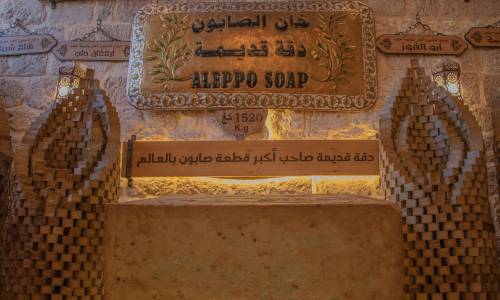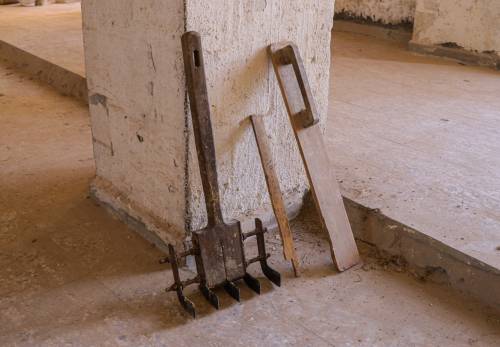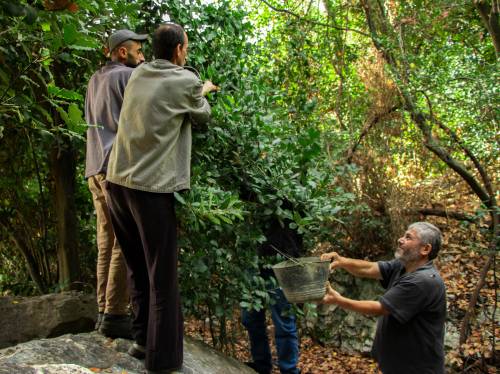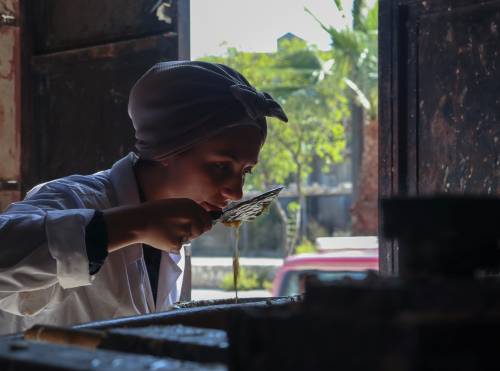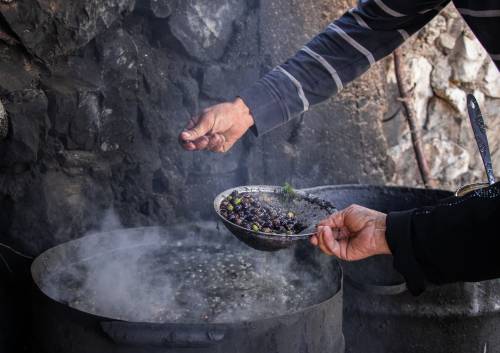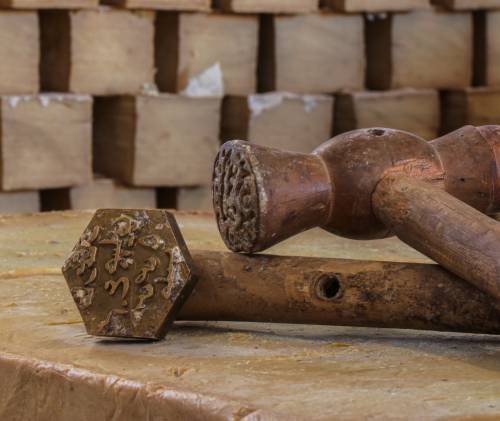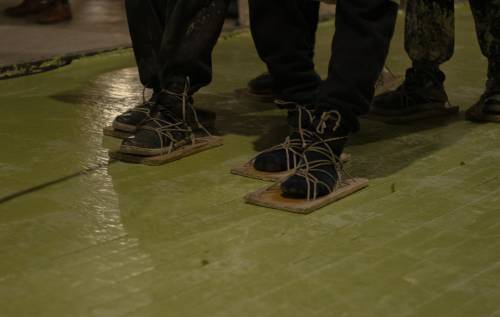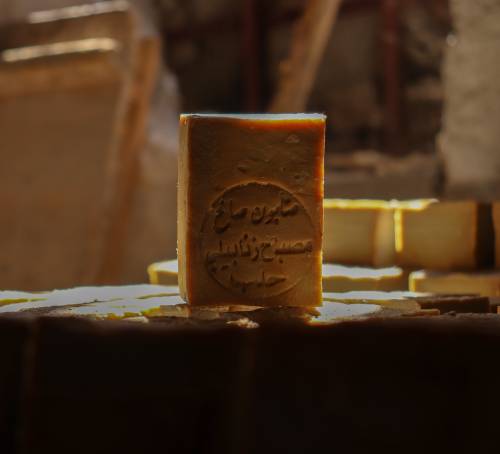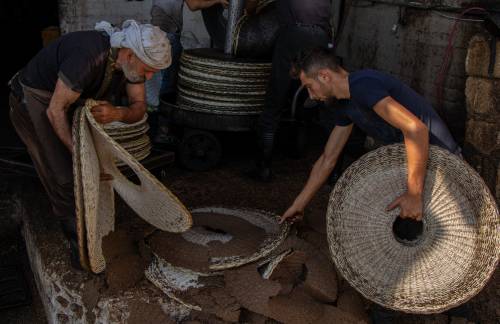Craftsmanship of Aleppo Ghar soap
Inscribed in 2024 (19.COM) on the Representative List of the Intangible Cultural Heritage of Humanity
The crafting of Aleppo ghar soap in the Syrian Arab Republic is based on traditional knowledge and skills that combine natural, locally produced olive oil (metraf) and laurel oil (ghar). In autumn, families pick the wild laurel berries from surrounding forests and boil them in water until they split. When the oil rises to the surface, it is skimmed off. The soap production begins in winter. Natural lye, metraf and ghar are combined and cooked. The mixture is poured on the floors of traditional soap factories and allowed to cool. Craftsmen then don large wooden shoes to cut the giant slab into cubes, using their body weight and a rake. Each cube is hand-stamped with the family name in an expression of family legacy and identity. The stamped soap cubes are stacked into cylindrical towers or pyramids to facilitate airflow and are stored to dry for six to nine months. Aleppo craftsmanship is transmitted informally within families, with children helping to collect olives and berries. Girls observe their mothers extracting the oil, and children learn soap-making from their fathers. The collaborative production process promotes community and family unity and intergenerational dialogue.

